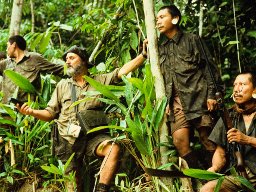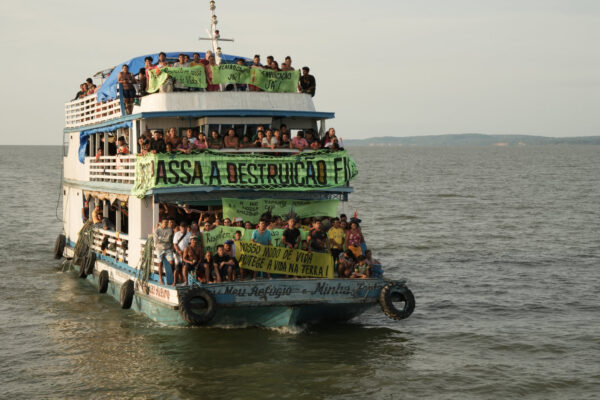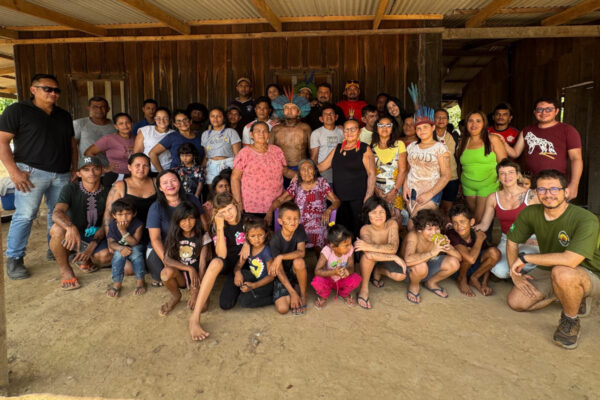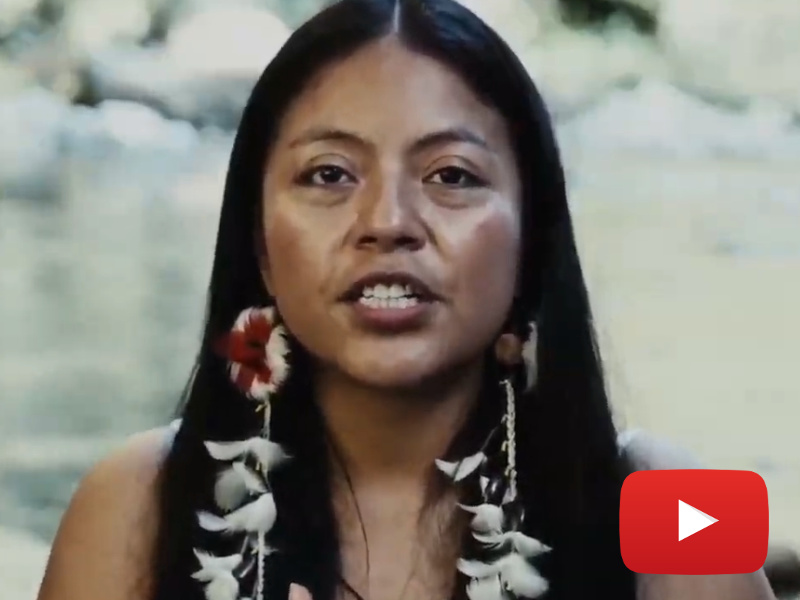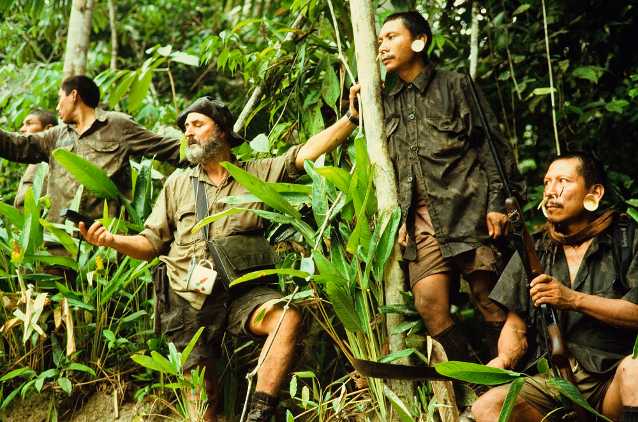
“Hidden tribes of the Amazon”, “free peoples”, “uncontacted tribes”, “indigenous peoples in voluntary isolation.” While society is quick to cast labels, in most cases their true name is known only amongst members of their group.
It’s an amazing concept: small groups of people who live in the most remote parts of the jungle, shunning all contact with the rest of the world.
I distinctly remember first encountering the idea as I marveled at Scott Wallace’s National Geographic article, published in 2003. Wallace details an extraordinary expedition deep into the Brazilian Amazon, close to borders with Colombia and Peru, led by distinguished Brazilian anthropologist and indigenous rights defender Sydney Possuelo. (An expanded version of the story will be published later this year in with Scott’s new book, The Unconquered: In Search of the Amazon’s Last Uncontacted Tribes..)
Long before I would work for Amazon Watch, Scott’s article made an indelible mark on me. The central thesis was a cognitive dissonance-inducing idea counter to everything we have been taught: we are not obligated to contact indigenous groups and “civilize” them. In fact, people have the right to choose a life that isn’t dominated by money, oil and material possessions, if they wish.
And why not? It’s no surprise that the experience of “contact” is devastating. Disease destroys the population and survivors are often forced into slave labor and exploited by groups of loggers. In the Amazon, many groups still recall the “rubber boom”, a century old but well within oral historical memory. Our friends at Survival International recently noted the 100th anniversary of the ground-breaking Casement Report that documented the killings, torture, rape, forced starvation of over 30,000 indigenous persons in the course of 12 years.
According Survival International, agents of the British-registered rubber giant Peruvian Amazon Company rounded up dozens of Indian tribes in the western Amazon to collect wild rubber for the European and American markets. In a few short decades many of the tribes were completely wiped out.
Living with this memory, some groups have decided it’s better to melt further into the forest than face likely annihilation. They clearly know about the outside world – recent photos show an “uncontacted tribe” with t-shirts and a machete – but have decided they don’t want to be part of it. The long history of Christian evangelicals learning indigenous languages in order to evangelize and pacify probably doesn’t help, either.
Serendipitous Encounters: Meeting Sydney Possuelo in New Zealand
To my pleasant surprise, I was able to meet Sydney Possuelo during a recent trip to New Zealand. By chance, he is living there for the next two years as his wife does a post-doc and by further chance Scott Wallace (now a friend) suggested that we connect. I was meeting to talk about Maori opposition to an offshore gas concession offered to Brazilian oil giant Petrobras.
Possuelo drafted an open letter this past December, which he is currently circulating for signatures. In part, the letter states that: “Dams, roads, bridges are being built in the Amazon, without proposing measures that effectively protect the rights of these peoples, and if these attitudes persist, the fate of the isolated is already written down and they will disappear.”
“We can not remain indifferent to this drama. It is time to react and that States, Governments, businesses, international agencies, churches, nongovernmental organizations, all should provide guarantees for the care of human rights of non contacted peoples of the Amazon. It is a matter of conscience and imperative moral. I’m not asking to stop their government plans, I do claim, though, that a portion of what they spend on infrastructure and the investment in extractive industries, to use it to truly preserve the isolates from all kinds of violence.”
(You can add your signature to the letter by writing to [email protected])
In addition to supporting this letter, Amazon Watch recently organized a European delegation of three Amazonian leaders to denounce mega-dams in both Brazil and Peru. One of the key concerns about the Madeira Dam complex, as articulated by Almir Surui, is the likely impact on local un-contacted tribes.
Looking for Protection at the Organization of American States
In the arcane language that is humanrights-ese, one of the “international human rights mechanisms” is known as the Inter-American Commission on Human Rights, a Washington, DC-based organ of the OAS. Individuals, organizations, or communities at risk of imminent human rights violations can request “precautionary measures” geared toward providing concrete protective actions to stop said violations. For the most part, it is one of many ways of warning a given government that they are being watched and need to live up to their human rights commitments, or face international condemnation.
Amazon Watch has supported indigenous partners in recent years, especially from Peru, who have requested precautionary measures against the incursion of extractive activities (logging, oil exploration) in areas known to be inhabited by isolated groups. Unfortunately, the Commission has yet to issue such measures, in part because governments have been successful in sowing doubt about the existence of uncontacted groups.
In an effort to continuing educating the Commissioners and their expert lawyers about this novel concept, a coalition known as the International Indigenous Committee for the Protection of Amazonian People in Isolation and Initial Contact (CIPIACI), presented during a thematic hearing on March 18, 2011.
According to an article posted on Servindi’s website, a CIPIACI lawyer stated that “Isolated indigenous peoples are facing a slow extermination, that implies a physical and cultural disappearance. In all of the countries of the Amazon region and Paraguay there is systematic violence against these groups, they are harassed and persecuted so they abandon their lands. The situation is producing genocidal processes.”
Peruvian indigenous leader Jaime Corisepa highlighted the cross-border nature of the issue: many isolated groups move between different countries, for example between Peru and Brazil, or Peru and Ecuador. As such, protective measures must be agreed and coordinated between those countries.
Proposed protective measures include all governments freezing activities that impact uncontacted indigenous peoples’ lands, the elaboration of a special report about the situation of uncontacted groups throughout the region with additional recommendations for governments, and that the Inter-American Commission should visit the region to learn more about the local conditions in each country.


